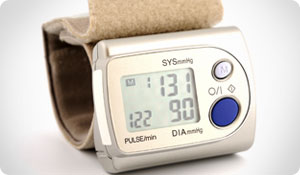
Several companies, including Suunto, Polar, and Timex, make heart rate monitors that help you keep track of your fitness level, tells you the number of calories burned, gives you your heart rate and even provides you with motivation-boosting messages, displayed on the watch face.
According to the American Health Association (AHA), lack of exercise is a major risk factor for developing coronary artery disease. And while you know sticking to a regular exercise program is good for your health, finding motivation every day to go for a walk or get to the gym may be difficult. Instead of fretting about it, let technology come to your rescue and give you that extra push you need.
To help you maintain your weight-loss goals, the French company WIThings makes an electronic scale with a built-in Wi-Fi connection that automatically records your weight and instantly transmits it to you home computer, iPhone, or iPad. And to make those early morning jogs less boring, Haier America Trainer makes a portable MP3 player that also includes a heart rate monitor, pedometer, calorie counter, and stopwatch and is small enough to clip to your workout gear.
Staying Heart Fit
Even moderate amounts of exercise, such as brisk walking 30 minutes a day most days of the week, can help lower your risk for obesity, high blood pressure, high cholesterol, and diabetes. In addition to walking, these activities are especially beneficial to your heart:
- Hiking, stair-climbing
- Jogging, running, bicycling, rowing, and swimming
- Sports such as soccer and basketball
Before starting any regular exercise program, it's a good idea to check with your doctor to determine which type and amount of exercise is right for you. According to the AHA, you should see your doctor if any of these issues apply to you:
- You have a heart condition
- You experience pains or pressure in the left or mid-chest area, left neck, shoulder or arm during or right after exercise
- You feel extremely breathless after mild exertion
- You're taking medication for high blood pressure, a heart condition, or a stroke
- You have bone, joint, or muscle problems
- You have a medical condition (for example, insulin-dependent diabetes) or other physical factor that might require special attention in an exercise program
- You are middle-aged or older and haven't been physically active
Sources:
American Heart Association
http://www.heart.org/HEARTORG/
"These Digital Trainers Know How to Motivate." New York Times.
http://www.nytimes.com/2010/09/26/business/26novel.html





